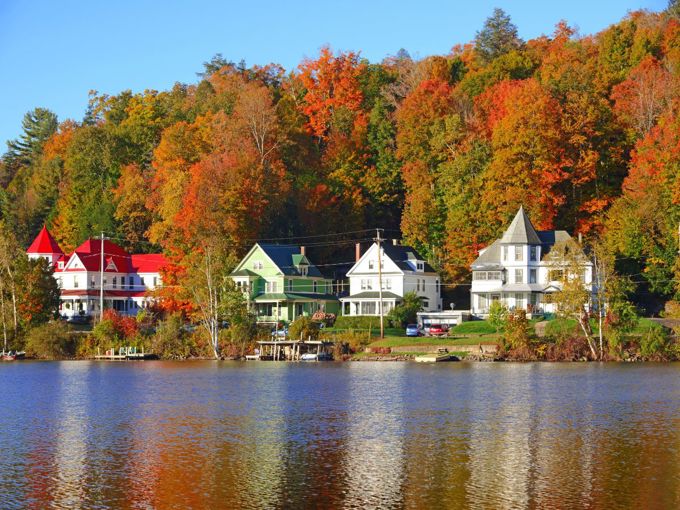
Do I Control What Happens on the Water at my Waterfront Property on a Lake or Pond?
You purchased a beautiful waterfront property, and you paid (a lot!) extra to get that beautiful view and the water-related recreational activities. A couple of months ago we asked in this blog: Can you stop noisy jet skiers, or boaters who like to park just offshore your waterfront property to fish, socialize or party? The answer, we said at that time, is “it depends.” We also said that you have a better chance to exercise some control if your waterfront property is on a lake or a pond, as opposed to waterfront located on a bay, river, creek or the shores of the sea. So, in this article we explain your rights if you are a waterfront property owner on a lake or a pond.
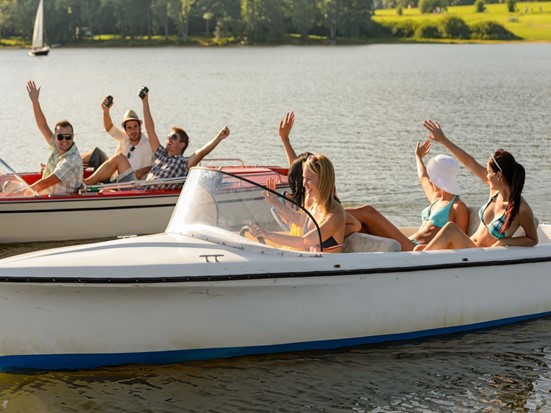
(Candybox Images / Shutterstock.com)
Understanding the Importance of Bottomland Ownership
As we said in our earlier article published a couple of months ago in this blog, bottomland ownership plays a key role. By “bottomland”, we mean the land underneath the water. Once we have sorted out the different ways you can acquire bottomland ownership rights at a lake or pond in Virginia then we can answer these important questions:
- If I own waterfront property on a lake or a pond, do my property lines extend into the lake or pond?
- If I own waterfront property on a lake or a pond, where does my property line end?
- If there is more than one waterfront property owner on the lake or pond, do we share rights to the lake or pond?
- If I own waterfront property on a lake or a pond, how do the property lines limit where I can build a dock or a pier?
- Who handles property line disputes at my lake or pond?
- How are riparian property lines determined at my lake or pond?
The starting place is Virginia Code §28.2-1200 which, with some exceptions (that we will discuss in a future blog post), gives the Commonwealth of Virginia ownership of all of the bottomland in the bays, rivers, creeks and the shores of the sea. But, notably, this statute does not apply to lakes and ponds. Instead, the bottomland at lakes and ponds is privately owned. In most situations the waterfront property owners are the same people who own the bottomland at lakes and ponds.
How Your Deed Can Determine Your Rights
The language in the waterfront property owner’s deed is crucially important in defining how much control the waterfront property owner can exercise over activities at the lake or pond. This is one of the (many) reasons that we recommend everyone buying waterfront property anywhere in Virginia get advice from a riparian property rights attorney. There are several things a buyer would want to know before committing to spend the kind of money needed to purchase waterfront property: Can other people boat or fish on the lake or pond? What about swimming? Can another waterfront property on the lake or pond build a dock or a pier that will spoil my view? Can another waterfront property owner at the lake or pond lower the water level by pumping out water or by lowering the dam?
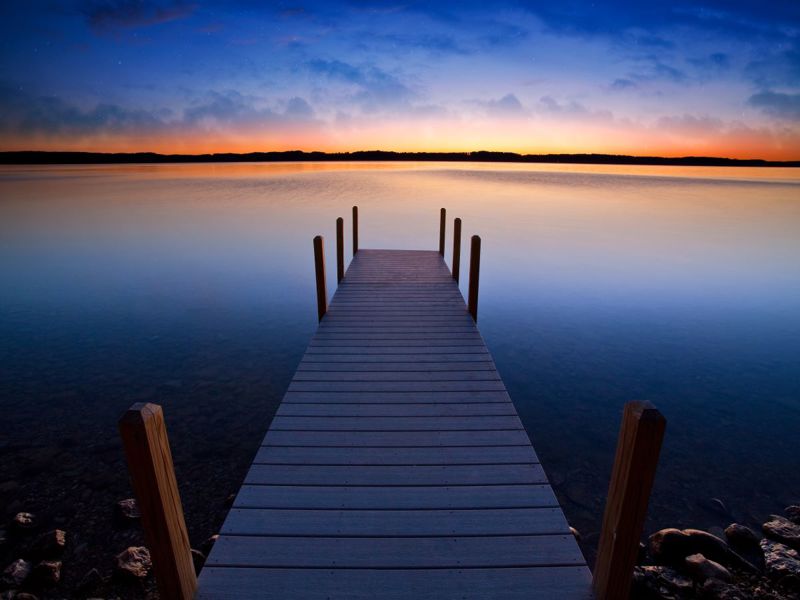
(Keith Klosterman / Shutterstock.com)
The best deed is one that, in addition to conveying the upland property, also states in legally sufficient terms the specific part of the bottomland in the lake or pond that is included in the deed. If the waterfront property purchaser receives this type of deed, he or she will have the property lines for the bottomland that are stated in the deed. This waterfront property owner will be able to build a dock or pier anywhere on the bottomland that he or she owns subject only to local zoning law and the requirements of Va. Code §62.1-164. This waterfront property owner can stop others from building a dock or pier on the bottomland owned by this waterfront property owner, can stop others from boating, fishing, and swimming in the water above this bottomland. The Virginia Supreme Court has even said that someone with this type of deed can build a fence in the pond or lake to keep others away from his or her bottomland. Because this type of deed is so powerful, this waterfront property owner does not have to share rights in the area of his or her bottomland with any of the other waterfront property owners at the lake or pond. Disputes, if not informally resolved, can be taken to the Circuit Court.
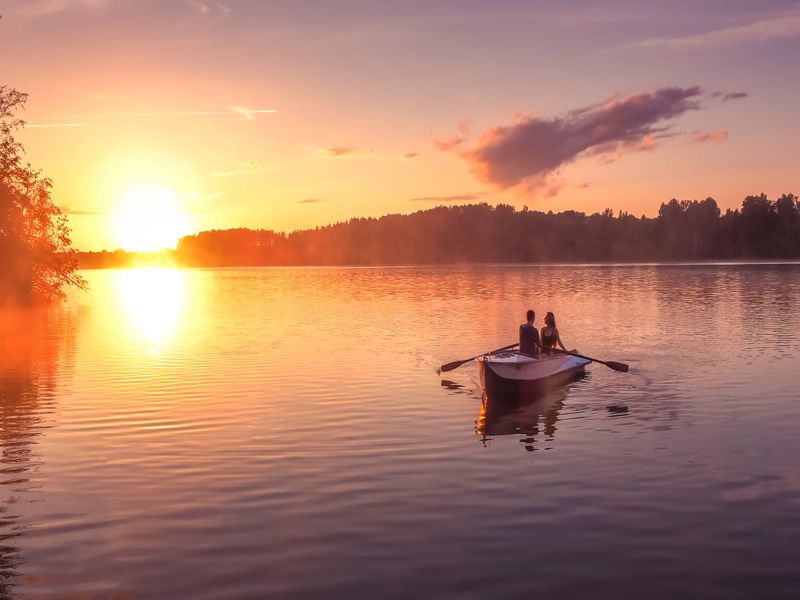
(Natalya Erofeeva / Shutterstock.com)
What If Your Deed Lacks The Legal Terms That Would Have Given You The Strongest Form of Control?
Many deeds, however, do not have the specific legal terms that provide so much control for the waterfront property owner at the lake or pond. Instead, the deed may (or may not) mention that there is a lake or pond next to the upland property that is being conveyed. This brings up two further situations.
First, in some situations, the bottomland is already owned by another person who has the type of deed that provides the high level of control previously mentioned. In this case the waterfront property owner may be frustrated to learn that he or she does not own any of the bottomland in the lake or pond. As such he or she cannot build a dock or pier, but someone else (i.e. the owner of the bottomland) may be able to do so. Similarly, the waterfront property owner will have to live with others boating, fishing, and swimming in the lake or pond. Considering that this waterfront property owner probably paid (a lot!) extra on the assumption that he or she would get an unspoiled view of the lake or pond, and would get to enjoy the other water-related amenities, the decision to forego the advice of a riparian property rights attorney before entering the contract to purchase that waterfront property could bring about a lot of bitterness, grief and heartache.
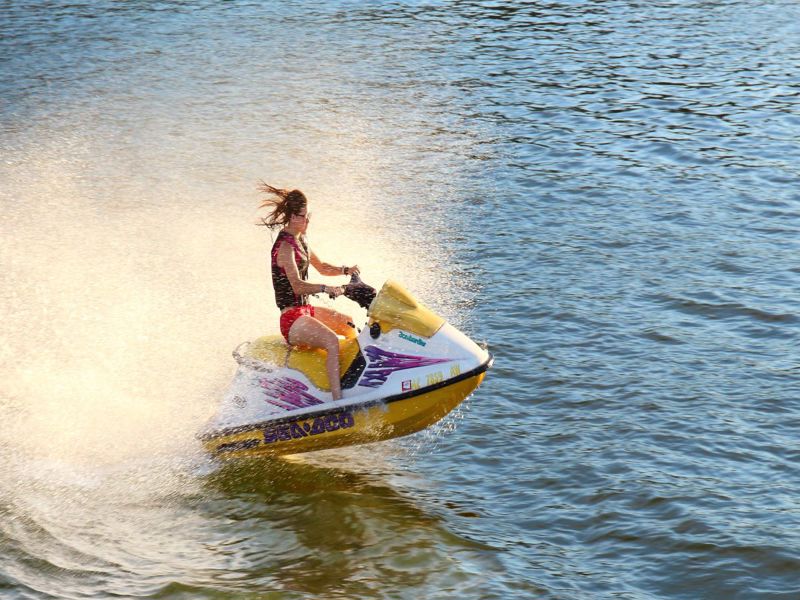
(DCornelius / Shutterstock.com)
Second, and quite commonly, the bottomland at the lake or pond is not already owned by someone else and, hence, is eligible to be conveyed, but the deed lacks the legal terms needed to give the waterfront property owner the power to control activities on the lake or pond. In this situation, the waterfront property owner owns the bottomland out to the center of the lake or pond (the same as the other waterfront property owners at that lake or pond). All of the waterfront property owners have the right to use all of the surface waters for boating, fishing and swimming. All of the waterfront property owners have the right to build a dock or pier, subject only to local zoning law and the requirements of Va. Code §62.1-164. None of the waterfront property owners are permitted to fence off a section of the lake of pond.
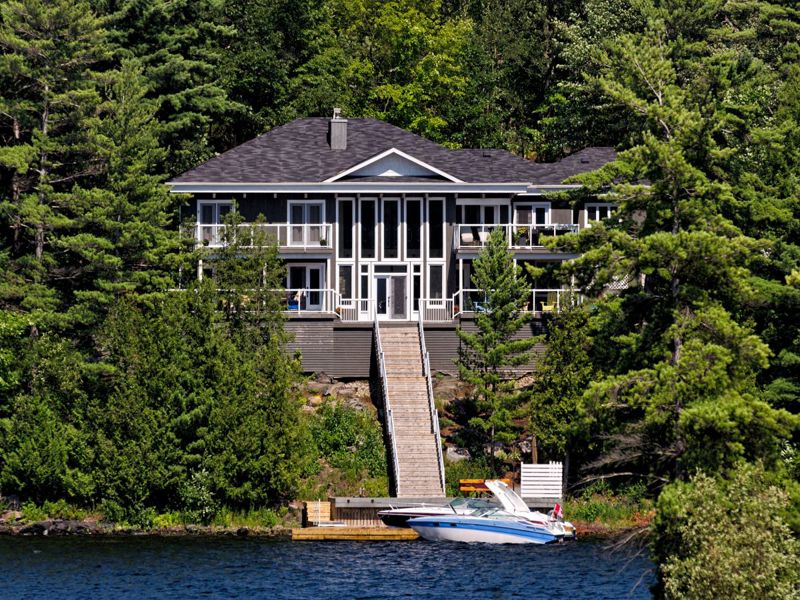
(LesPalenik / Shutterstock.com)
As you can see from reading this article, purchasing waterfront property on a lake or a pond is expensive and it brings up a very complicated area of the law requiring special expertise. If you have any further questions about bottomland property rights at lakes or ponds in Virginia, our experienced team is happy to help. Feel free to contact us here.
